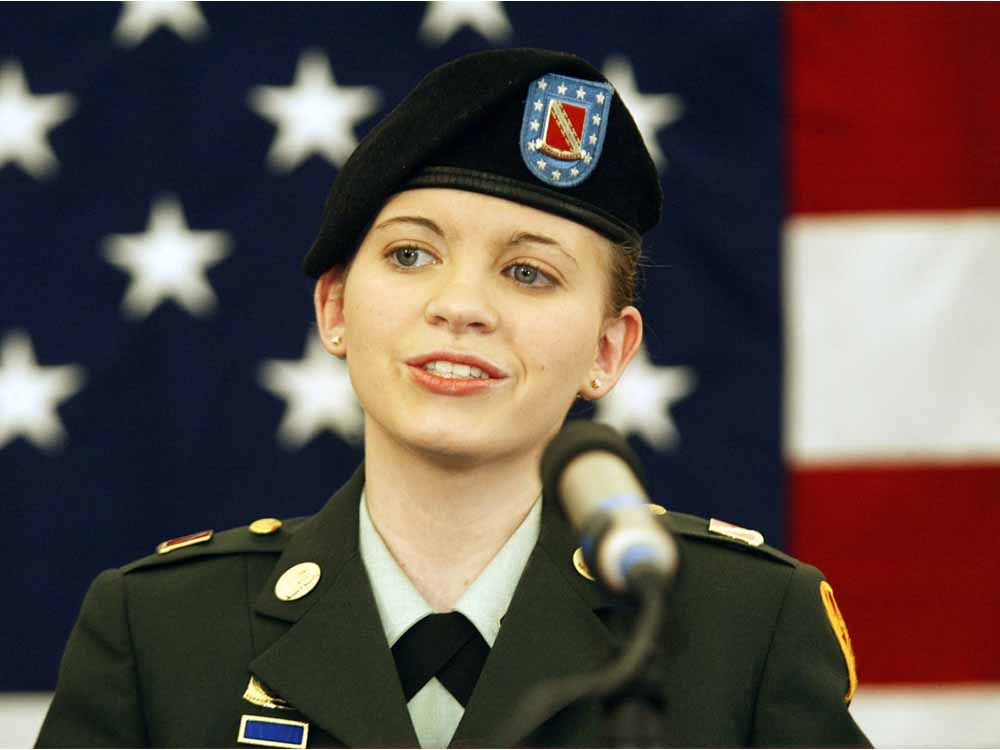Jessica Lynch in 2003: A Story of Courage, Capture, and Controversy
The year 2003 marked a pivotal moment in the life of Jessica Lynch, a young soldier whose capture and subsequent rescue during the Iraq War captivated the world’s attention. Lynch’s journey from a small town in West Virginia to the front lines of battle, and her harrowing ordeal as a prisoner of war, became emblematic of the sacrifices made by military personnel in the conflict.
Early Life and Military Service
Humble Beginnings
Jessica Lynch was born on April 26, 1983, in Palestine, West Virginia, a rural community nestled in the Appalachian Mountains. Raised in a close-knit family, she was known for her strong work ethic, determination, and love of country.
Enlistment in the Army
Inspired by her desire to serve her country, Lynch enlisted in the United States Army in 2001, shortly after the September 11 terrorist attacks. She underwent basic training at Fort Jackson, South Carolina, before being assigned to the 507th Maintenance Company based in Fort Bliss, Texas.
Capture and Rescue
Ambush in Nasiriyah
On March 23, 2003, during the early days of the Iraq War, Lynch’s convoy was ambushed by Iraqi forces near the city of Nasiriyah. The attack resulted in the deaths of several soldiers and the capture of others, including Lynch. Severely injured in the ambush, Lynch was taken captive by Iraqi forces and transported to a hospital in the city.
Rescue Operation
Lynch’s capture sparked an intense rescue operation led by U.S. Special Forces and Marines. On April 1, 2003, after nine days in captivity, Lynch was rescued from the hospital by American forces in a dramatic operation that garnered worldwide media attention. The successful rescue bolstered morale among U.S. troops and provided a symbol of hope amidst the ongoing conflict.
Controversy and Media Scrutiny
Conflicting Narratives
In the aftermath of Lynch’s rescue, conflicting narratives emerged regarding the circumstances of her capture and rescue. Initial reports suggested that Lynch had been captured after bravely fighting off Iraqi forces until she ran out of ammunition, portraying her as a heroic figure. However, subsequent investigations revealed that Lynch’s injuries were primarily the result of a vehicle crash during the ambush, and that she had not engaged in combat.
Media Sensationalism
The media coverage surrounding Lynch’s story became highly sensationalized, with some critics accusing journalists of exaggerating her role in the events for dramatic effect. Questions were raised about the accuracy of the initial reports and the motives behind the portrayal of Lynch as a heroic icon. Lynch herself expressed discomfort with the media attention and sought to set the record straight about her experiences.
Post-War Life and Legacy
Recovery and Rehabilitation
Following her rescue, Lynch underwent extensive medical treatment to recover from her injuries, including multiple surgeries and rehabilitation sessions. Despite facing physical and emotional challenges, she remained resilient and determined to rebuild her life.
Advocacy and Inspiration
In the years that followed, Lynch became an advocate for wounded veterans and spoke out about her experiences as a prisoner of war. Her courage and resilience served as an inspiration to many, earning her admiration and respect from fellow service members and the public alike.











